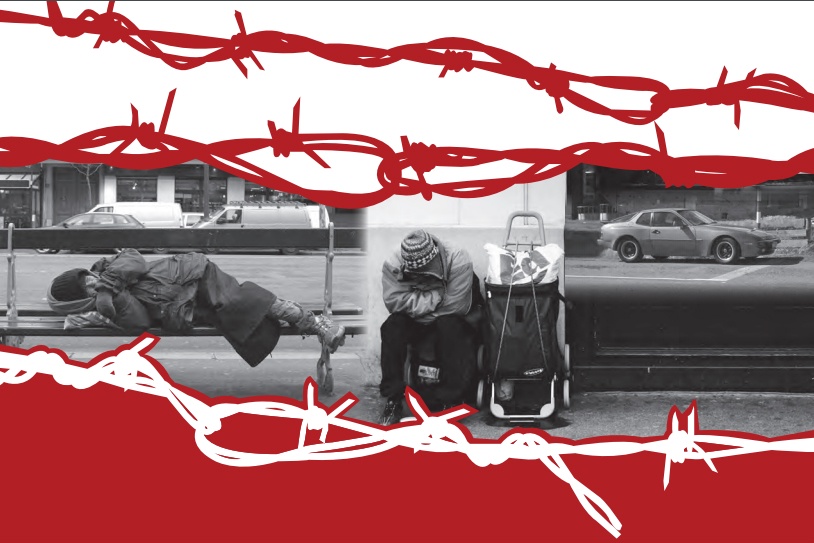A new report from the National Law Center on Homelessness and Poverty says anti-homeless policies in Puyallup have earned the small Washinton town a place on the NLCHP’s “Hall of Shame.” From the report:
“Even though there is no year-round emergency shelter available to the rapidly growing homeless population in Puyallup, the city has enacted a number of laws making it illegal to camp, panhandle, sit or lie down in large swaths of the city, or to be present in public parks after closing. Moreover, the city has amended its trespass law to allow people to be banned from all public places within the city for up to five years if they violate any of these laws – an inevitability for homeless people who have no ability to comply due to a lack of alternatives.”
Last year, the Department of Justice voiced its view that these kinds of laws are unconstitutional. In an August letter, the DoJ argued that cities which do not offer adequate shelter for the homeless cannot punish them for public camping. Doing so, they argued, would violate the 8th Amendment’s prohibition on “cruel and unusual punishment,” which courts have interpreted to include punishment for unavoidable conduct (like sleeping outside when you have nowhere else to go). Of course, the recent election of Donald J. Trump as president may cause a change the DoJ’s view.
According to the Tacoma News-Tribune, Puyallup Mayor John Hopkins took “great offense” to his town (whose name literally means “generous people”) being placed on the list. He added that he and council “have been working all year to come up with a humane program. We have spent more time and effort this year in studying homelessness than we have in the last 10 years all together.”
The TNT reports that “Residents have complained that [a homeless referral center] has attracted a cadre of homeless people who camp on the River Trail, steal property and do drugs and have sex in public. The city is working on new licensing conditions to keep [the center] more tightly regulated.”








